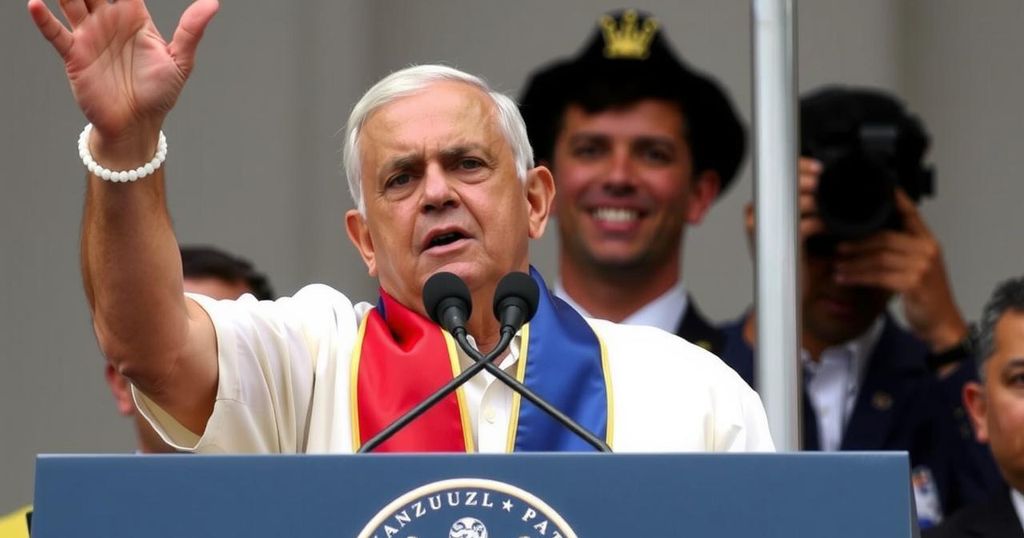Nicolas Maduro’s third term inauguration as Venezuela’s president was met with international condemnation due to allegations of electoral fraud. The United States and European Union denounced the legitimacy of his presidency and imposed further sanctions. Conversely, Maduro received support from an isolated group of countries, emphasizing the polarized global response to his leadership.
Nicolas Maduro’s inauguration on Friday for a third term as Venezuela’s president faced widespread international condemnation, as numerous countries accused him of seizing power through electoral fraud during the July elections. The 62-year-old Maduro, undeterred by the allegations, has proclaimed the legitimacy of his victory. Following the ceremony in Caracas, reactions varied significantly, with some nations offering support while others denounced his leadership as illegitimate.
In the United States, Secretary of State Antony Blinken described the event as an “illegitimate presidential inauguration,” asserting that Maduro “clearly lost” the last election. The U.S. government further escalated its efforts against Maduro by raising its reward for information leading to his arrest to $25 million. In addition, the U.S. Treasury Department announced sanctions on eight Venezuelan senior officials involved in what it termed Maduro’s repression and undermining of democracy.
The European Union echoed similar sentiments, declaring that Maduro is not the legitimate president of Venezuela. Kaja Kallas, the EU foreign policy chief, stated that Maduro “lacks all democratic legitimacy,” leading to further sanctions on an additional 15 Venezuelan officials linked to the electoral body, judiciary, and security forces. UK Foreign Secretary David Lammy remarked that Maduro’s claims to power are fraudulent, and he expressed that the July elections were neither free nor fair.
UN Secretary-General Antonio Guterres urged Venezuelan authorities to release individuals arbitrarily detained since the elections, strongly condemning the detentions across a spectrum of society, including opposition leaders, journalists, and human rights advocates.
In contrast, Russian President Vladimir Putin congratulated Maduro on his assumption of office, with lower house speaker Vyacheslav Volodin representing Russia at the inauguration. Only two heads of state, Cuba’s Miguel Diaz-Canel and Nicaragua’s Daniel Ortega, attended the ceremony, further highlighting Maduro’s vilified status.
While traditional leftist allies, including Brazil’s Luiz Inacio Lula da Silva, chose to boycott the event, the global response was overwhelmingly critical of Maduro’s administration, illustrating the ongoing diplomatic isolation of his government.
Nicolas Maduro’s presidency has been characterized by controversy and allegations of electoral fraud. Following a contentious election in which many international observers reported irregularities, Maduro’s government has faced substantial criticism from the global community. In recent years, Venezuela has experienced a deepening crisis, exacerbated by economic decline and social unrest, leading to a mass exodus of its citizens. The political landscape remains polarized, with Maduro receiving support from some nations, notably Russia and Cuba, while facing opposition from the United States and European countries, among others.
The inauguration of Nicolás Maduro for a third term highlights the stark divide in international opinion regarding his leadership. Accusations of electoral fraud have drawn condemnation from various countries, with many emphasizing the need for democratic integrity in Venezuela. The enforcement of sanctions and political isolation from Western nations underscores the significant challenges Maduro faces both domestically and on the world stage as he continues to assert control over the nation in the face of widespread dissent.
Original Source: www.barrons.com






